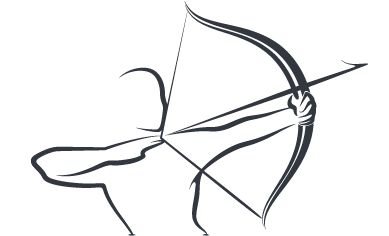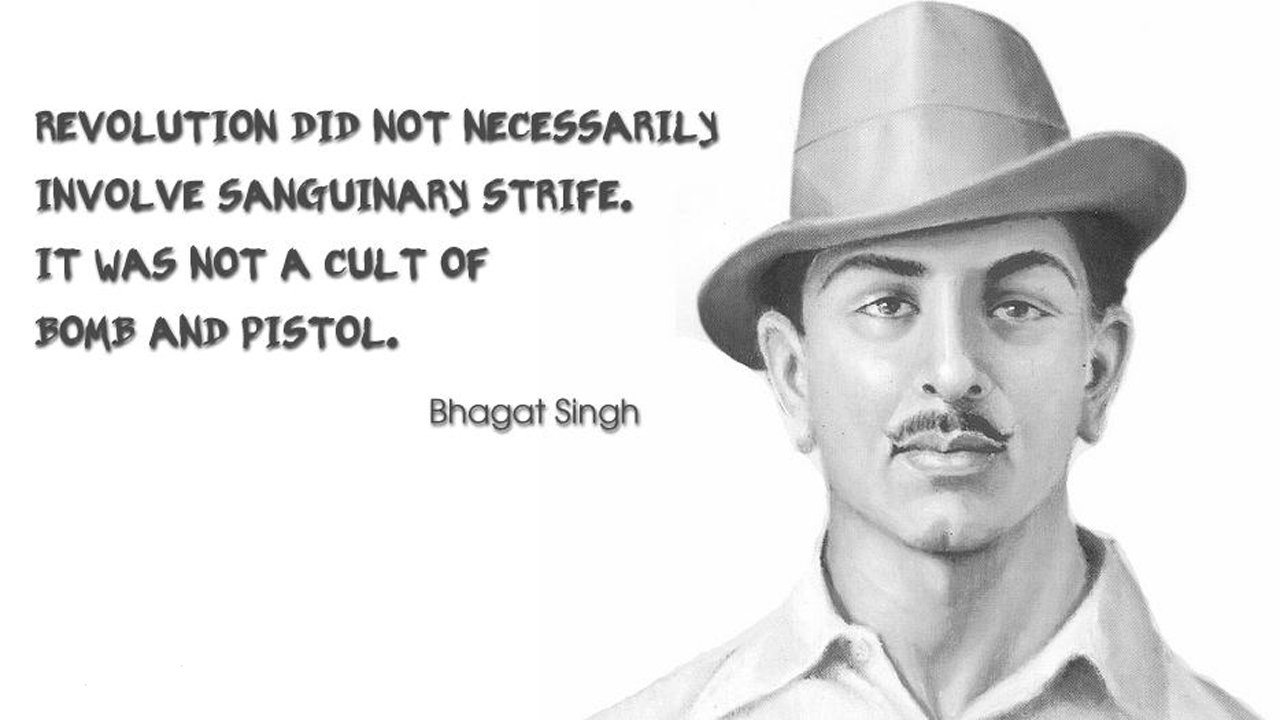Bhagat Singh, the legend who re-defined Patriotism and Love for the Motherland in his own terms is as much unknown as he is popular among masses. What we know of him, seems to be the tip of the iceberg. I read a few pages of his works and felt that I really need to know him more.
He must have understood life through a comprehensive lens that did not stop him from diving deep into all aspects of a human. He is an Eklavya who learnt all this by himself and made the best of each day.
I don't know when was he born or when did he die for the motherland. I don't even know much about his native place or family he belonged to. But I have an honest and strong realisation that I Know Bhagat Singh!
It is through his words in the book "Why I am an Atheist?"
There are two parts of the book. One is the title related work and the other is his critical introduction to a book of poetry written by one of his friends. I read the second one first and found that an understanding of literature had been there in him.
He knew literature, especially poetry, as what it should be in that age. His blunt remarks, rejections, appreciations and observations demand a double reading. Not because it is tough to understand him in the first attempt but because it is so subtle as well as balanced that one feels like reading him more.
I read "An Introduction to The Dreamland" and noted the eagle's eye as well as an expanded point of view. It was his noble friend, L. Ram Saran Das, who asked him to write an introduction to his poetical work. With reluctance as well as a disclaimer about his 'incompetency in literary criticism' he writes and makes a historic piece of writing.
He says, "As I am not a poet I am not going to discuss it from that point of view." This makes his observations unique and special. We grow in curiosity. He further says that "it can at the utmost amount to a criticism, and its place will be at the end and. It is the beginning of the book."
He moves to the significant part then. To Bhagat, a revolutionary party or a rebel must have 'clear ideas as to what they were fighting for'.
"We must make it clear that revolution does not merely mean an up heaval or a sanguinary strife. Revolution necessary implies the programme of systematic reconstruction of society on new and better-adapted basis, after complete destruction of the existing state of affairs (i.e., regime)."
We get to know that L. Ram Saran Das was jailed and he wrote this collection of poetry in jail. Bhagat Singh gives a highlighted mention to his stay in jail.
L Saran Das had refused to get pardoned by giving undertakings and this temptation couldn't mar his determination. The memories of wife and children added to his longing and he had to struggle against the longing for liberty. Bhagat Singh quotes from a poem:
"Wife, children, friends that me surround
Were poisonous snakes all around,"
By quoting these very lines, Bhagat Singh gave a special understanding of his mind.
To me, he seemed one who sees the emotive heart as a hurdle in being a revolutionary.
After these thoughts, we get an insight into what he thought of Philosophy and Religion, per se Existence of GOD.
He differs from his friend's metaphysical eye and says ..."while I am a materialist and my interpretation of the phenomenon would be casual."
He disagrees with the mysticism based belief system and refutes the Hindu Sages who came out with the Maya-Mithya definition of the world.
Bhagat puts forward: "But in the materialist philosophy, this mode of thinking has got absolutely no place.
Bringing balance to his sharp criticism he adds," From my personal experience I can safely assert that in the secret work, when a man constantly leads a risky life, 'without hope and without fear', 'always prepared to die unknown, unhonoured and unsung', then, he cannot but fight the personal temptations and desires by this sort of mysticism which is by no means demoralising.
Making us understand what actually a revolutionary is, he quotes:
"If need be, outwardly be wild,
But in thy heart be always mild
Hiss if need be, but do not bite,
Love in thy heart and outside fight."
Destruction is not only essential but indispensable for construction.
I love the literary and life-related connotations of these words. To me, it relates to rationally growing-up, getting rid of the waste that gets attached to us in the world of mundane works. We need to throw away what we need to in order to be the one we want ourselves to be. The goodness of purpose remains the foundation of such changes.
I was quite surprised and amused to see that Bhagat Singh quoted Lenin with utter ease. The following excerpt speaks volume of him:
Lenin said to Gorky once that he could not hear music, which upset his whole nervous system and used to feel a desire to pat the heads of artists. "But", added he, “This is not the time to pat the heads. The hands descend now to smash the skulls, though our ultimate aim is the elimination of all sorts of violence." This is truly how the revolutionaries feel when they have to resort to violent means as a terrible necessity.
When we read the excerpt above, we see another side of his mind. He was what he made himself. There was no manipulation allowed by him to the circumstances around. I wonder this kind of subtleness as well as grown mind-makeup is possible with us.
Bhagat Singh speaks of 'conflicting religions' in the latter part of the essay. He says that his friend is talking of religions but “tries to conciliate them just as all the nationalists try to do.” By using this figure of speech (just as...), Bhagat Singh makes it clear quite loudly that religious obsessions or vanity do not have any space for them in 'Revolution'.
Coming to the concluding part of his 'introduction' he mentions 'Future Society'.
Bhagat Singh categorises The Dreamland as a work based on the concept of Utopia. At the same time, he says that "utopias play undoubtedly a very important role in social progress."
"In the future society i.e., the Communist society that we want to build, we are not going to establish charitable institutions, but there shall be no needy and poor, and no alms giving and alms-taking."
The review also has some really thought-provoking terms like Scientific Socialism. Bhagat labels the work with this as well.
"But there are things which one has to oppose or contradict, or to be more precise, to amend."
I need to skip sharing a couple of pages and I shall invite you to possess this small size wonder of thoughts.
The second last page has some wonderful sentences that one must see to know the Bhagat Singh who is par-excellence.
"The revolutionaries know better than anybody else that the socialist society cannot be brought about by violent means, but that it should grow and evolve from within.”
The last paragraph by Bhagat Singh in the Introduction to The Dreamland is a testimony to the writing genius of Bhagat Singh.
Here it is:
"I strongly recommend this book to young men in particular, but with a warning. Please do not read it to follow blindly and take for granted what is written in it. Read it, criticize it, think over it, try to formulate your own ideas with its help."
I feel we must read and re-read him.
He wants us to form our own ideas and opinions which are based on a mature and rational approach and observation.








